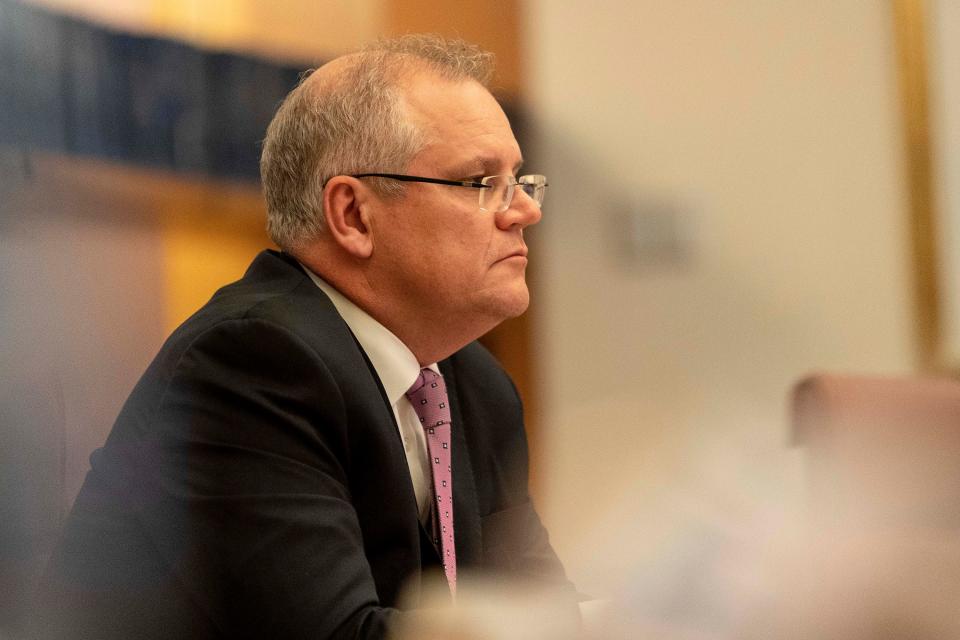'Disturbing': Much more government stimulus is needed

Let’s be frank: the Australian economy is entering its weakest performance since the 1930 Great Depression.
The key forecasts pointing to this from the very best of the market economists include real GDP falling by around 5 to 10 per cent in the next six months, with 20 to 25 per cent of the workforce either unemployed or underemployed.
Disturbingly, these forecasts take account of the fiscal stimulus measures already announced by the Morrison government and the monetary policy and banking measures delivered by the Reserve Bank of Australia.
More from The Kouk: Australia’s plan to rescue the economy: Too slow, too small
More from The Kouk: Crisis leadership: The high costs of inaction
More from The Kouk: The Future Fund can and should support the stock market
To any economist worried about the social and economic fall-out from the coronavirus pandemic, this suggests not enough has been done to support the economy during this health catastrophe.
A good effort to date
The Morrison government has announced three major fiscal stimulus measures in the last few weeks to tackle the economic fall-out from the coronavirus crisis. In addition, the government has announced a childcare support package which will play a part in helping to sustain employment and the economy with it.
These measures amount to around $215 billion of stimulus and there is no doubt that they are, in total, significant steps and will help to put a parachute on the economy as it falls off the cliff.
This is good news, but it is increasingly clear from the forecasts, they are not enough.
The fact that around 3 million people in the Australian workforce will be either unemployed or underemployed (not working the number of hours they want to) says the measures could be bigger, broader and even more supportive.
If $215 billion of fiscal stimulus will help support the economy, think how much support $315 billon or more would bring?
More stimulus money will help
As noted before, the Morrison government cannot be blamed for the unfolding recession. It is a unforecastable global health shock with savage consequences for the economy.
But the government should be accountable for how deep the recession is, and how long it lasts.
There are other measures the government could implement to further support the economy and limit the downside in GDP and the upside in unemployment and underemployment.
These include, for example, rent and mortgage repayments for households to help reduce the accumulation of debt while evictions are banned and mortgage holidays are in place; the payment of utility bills for impacted households would be a benefits for many; it could increase the recently announced $1,500 a fortnight wage subsidy which for many full-time workers is well short of their reasonable cost of living.
There is also a case to further ramp up payments for the unemployed, pensions and carer allowances, at least temporarily.
When too much stimulus is not enough
With a current deep recession, destroyed businesses, crushed wealth and a weak labour market, the government can ramp up its economic support almost without limit.
Any further government spending and initiatives will feed into the economy and will help support employment.
And it should be done soon, because the pain in the economy started when we saw the queues of unemployed outside the Centrelink offices and since then, things have deteriorated.
Stay tuned for more fiscal measures in coming days and weeks as the government works to shore up the economy.
Make your money work with Yahoo Finance’s daily newsletter. Sign up here and stay on top of the latest money, news and tech news.
Follow Yahoo Finance Australia on Facebook, Twitter, Instagram and LinkedIn.

 Yahoo Finance
Yahoo Finance 